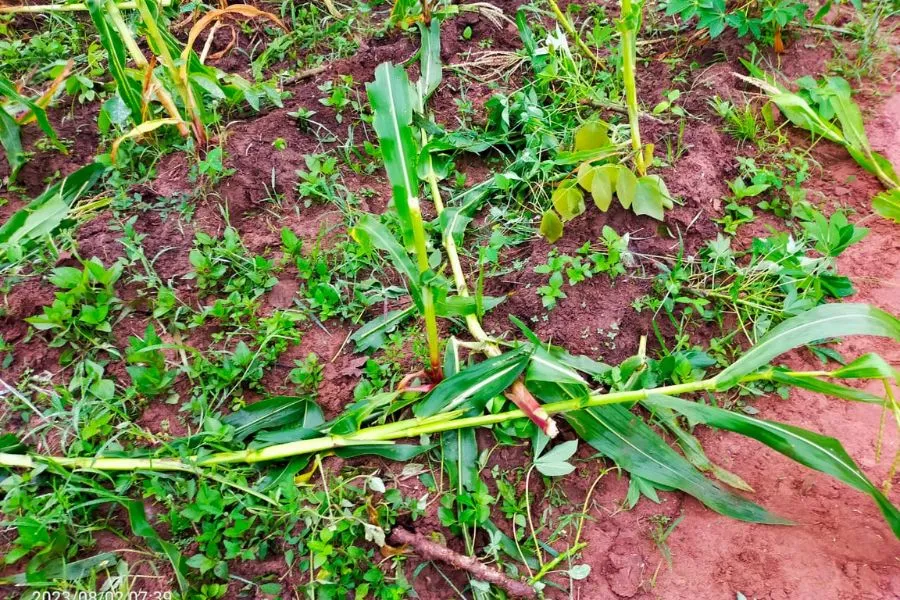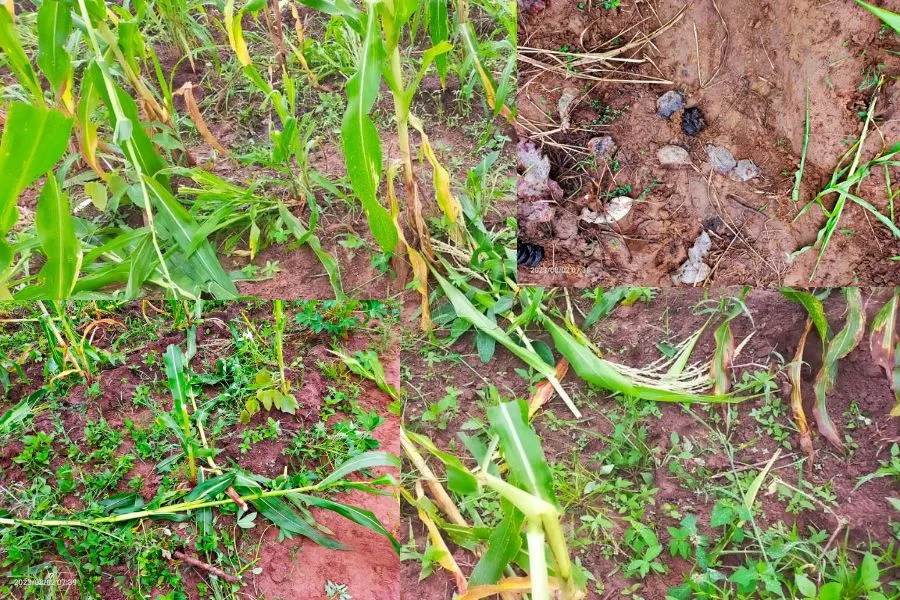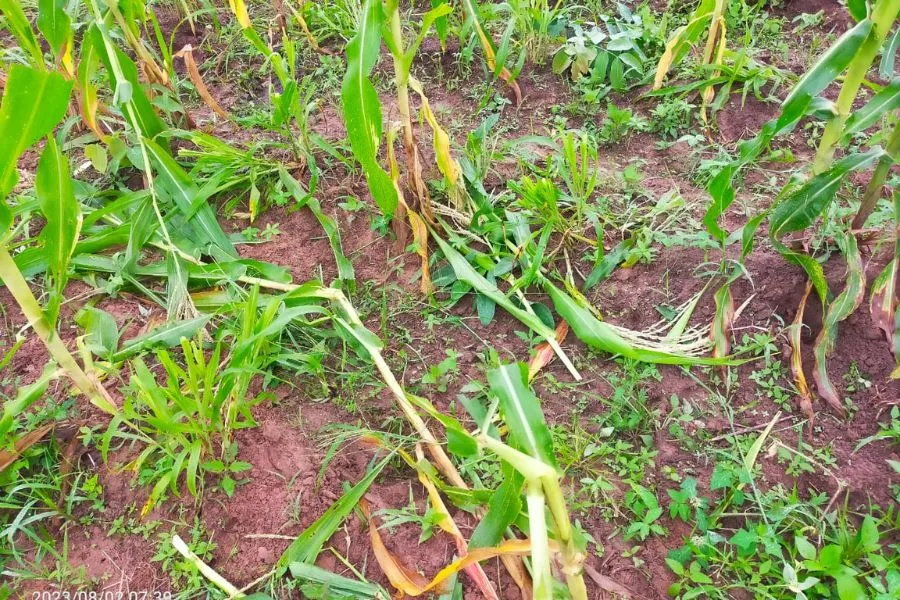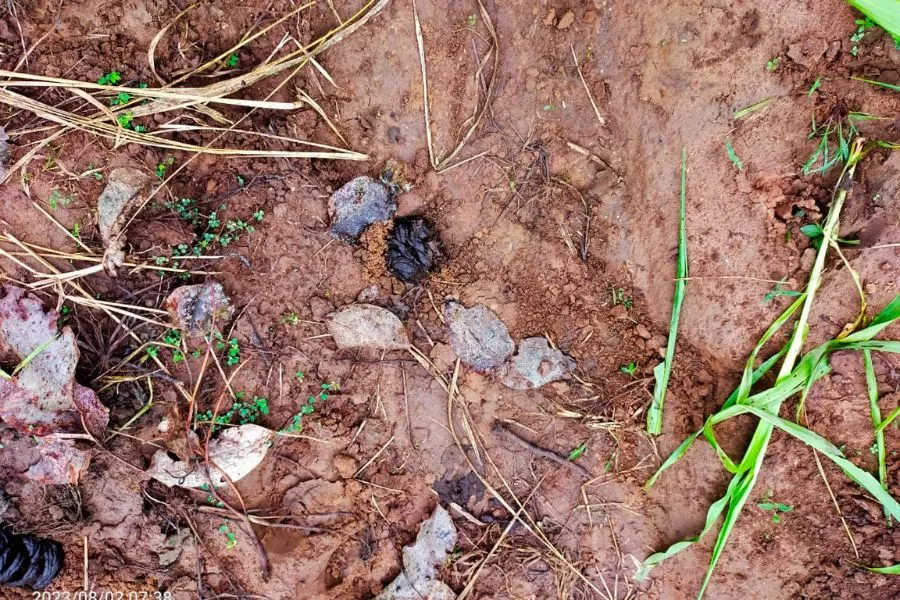"Locals are only left with less than a quarter of what used to be their land. The rest has been taken by the Fulani herdsmen. But it appears that that is not enough since they are following them here to the little parcels they acquired around the camps," the Catholic Priest says.
Fr. Igah has been Parish Priest of Udei since October last year and has seen the security situation of the communities and settlements served by the parish deteriorate by the day.
"I worked here as an assistant parish priest since 2021. Then, we had 13 outstations. When I took over as Parish Priest, we were down by five outstations. Today, only three are remaining. The rest have been closed down owing to the killings and intimidation by Fulani herdsmen," he says.
"Several outstations closed down when 43 people were killed in Ngban. Killings went in surrounding settlements throughout the entire Easter, leading to the closure of more stations. Others were closed when one of the Catechists in the parish and a Church leader was killed," the Priest said, and added, "Whenever a Catechist or Church leader is killed, people are filled with so much fear that they stop going to Church immediately. To them, Church leaders are the pillars of strength."
The only reason that Sacred Heart Udei Parish and two neighboring outstations haven’t closed down is the heavy military presence nearby, Fr. Igah tells ACI Africa.
(Story continues below)
Even then, the parish which is located on the edge of the settlements is surrounded by thickets where militants hide. This makes the primary school, behind the parish, the safest place for the locals. They come here every night and sleep on the floor for fear of attacks. Most nights, Fr. Igah sleeps alone in the parish house.
 Sections of maize plantations belonging to Christian farmers in Udei in Nigeria's Benue state recently destroyed by Fulani herdsmen. Credit: Fr Jacob Igah
Sections of maize plantations belonging to Christian farmers in Udei in Nigeria's Benue state recently destroyed by Fulani herdsmen. Credit: Fr Jacob Igah
The Priest understands the danger he faces every night he spends in the parish house alone. He says, "I can't leave. If I leave, the Church will be closed down. I have seen it happen in some of our outstations. If the Catechist or any other Church leader is killed or decides to flee, that marks the end of the outstation."
"I understand the risk of sleeping alone in the parish house but everyone else goes to sleep at the primary school. For militias to get to them, they must first get through me at the parish house. That is why I can’t leave this spot," he says.
Fr. Igah is sad that the Fulanis have risen against the same Christians that they grew up with. He says, "It is not that we don't know those attacking us. These are people we grew up with, living peacefully together. Today, they have turned against us and are killing us."
He explains that in the past, nomadic Fulanis would bring their cows to graze and move on peacefully, looking for pastures. "Today, they come with their cattle and violently chase away the owners of the lands. When they come, they make it clear that they want to settle on the lands."
Agnes Aineah is a Kenyan journalist with a background in digital and newspaper reporting. She holds a Master of Arts in Digital Journalism from the Aga Khan University, Graduate School of Media and Communications and a Bachelor's Degree in Linguistics, Media and Communications from Kenya's Moi University. Agnes currently serves as a journalist for ACI Africa.




 Sections of maize plantations belonging to Christian farmers in Udei in Nigeria's Benue state recently destroyed by Fulani herdsmen. Credit: Fr Jacob Igah
Sections of maize plantations belonging to Christian farmers in Udei in Nigeria's Benue state recently destroyed by Fulani herdsmen. Credit: Fr Jacob Igah
 Sections of maize plantations belonging to Christian farmers in Udei in Nigeria's Benue state recently destroyed by Fulani herdsmen. Credit: Fr Jacob Igah
Sections of maize plantations belonging to Christian farmers in Udei in Nigeria's Benue state recently destroyed by Fulani herdsmen. Credit: Fr Jacob Igah Sections of maize plantations belonging to Christian farmers in Udei in Nigeria's Benue state recently destroyed by Fulani herdsmen. Credit: Fr Jacob Igah
Sections of maize plantations belonging to Christian farmers in Udei in Nigeria's Benue state recently destroyed by Fulani herdsmen. Credit: Fr Jacob Igah


